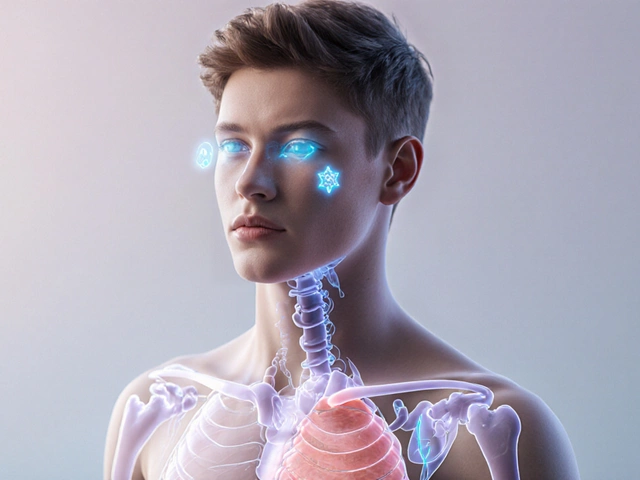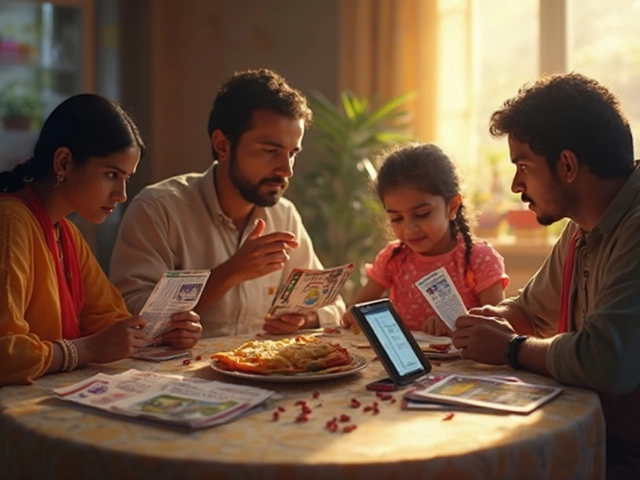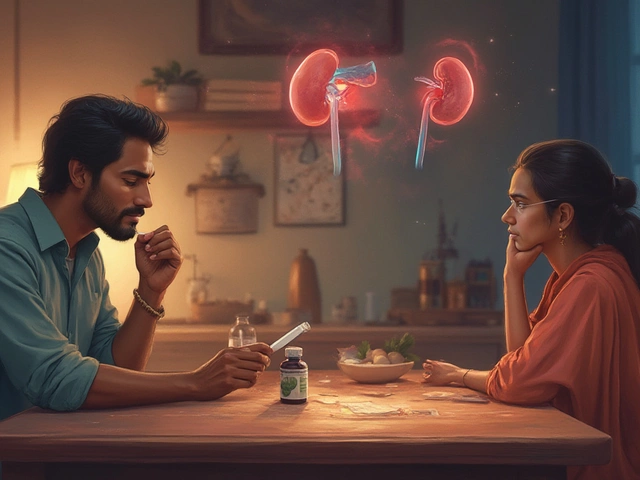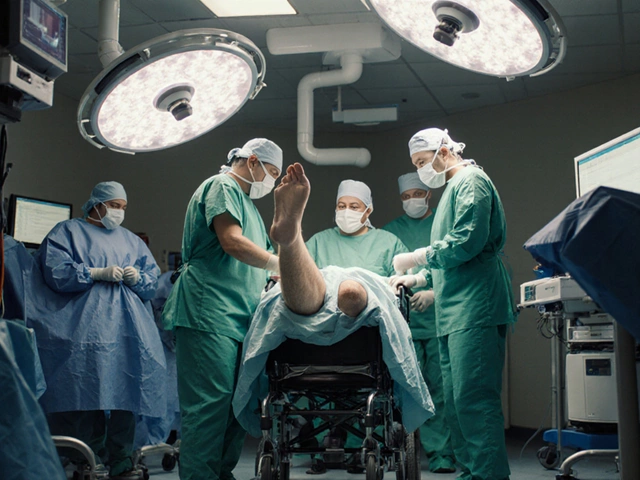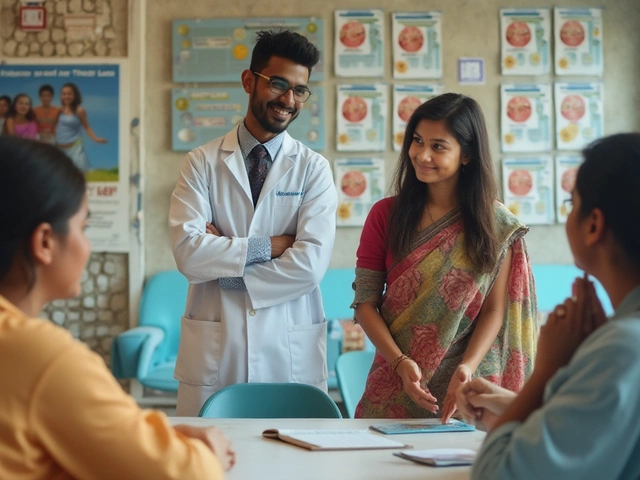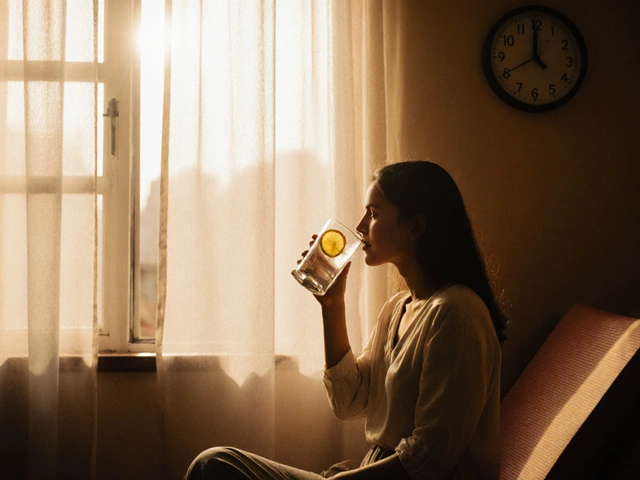Think cancer always knocks you down? The idea that cancer instantly brings pain or fatigue is a myth. Loads of people get diagnosed with cancer when they feel totally fine. They just go to a check-up or take a random scan for something else, and bam—there it is.
Some cancers work quietly in the background. They don’t throw out the ‘typical’ red flags until they’re way down the line. This explains why folks can walk around feeling healthy while the disease is catching steam inside. That’s honestly the scariest part—it creeps along without any fuss.
Now, you might be thinking, ‘If I feel good, why worry?’ It’s a fair question, but skipping check-ups gives sneaky cancers a head start. You can’t always trust your body’s signals, especially when it comes to this stuff. Staying on top of screenings is like checking under the hood before your car breaks down, not after.
- When Cancer Hides: Why You Might Not Feel Sick
- Common Cancers That Start Off Silent
- Everyday Signs That Might Slip Under the Radar
- Why Regular Screening Really Matters
- Smart Moves for Your Health: Tips and Next Steps
When Cancer Hides: Why You Might Not Feel Sick
Believe it or not, it's totally normal to have cancer without feeling anything weird at all, especially at the start. Most cancers grow slow, and your body gets used to small changes. That means you might go about your usual day while something gnarly is happening in the background.
So, why does this happen? Cancer often starts with just a few cells acting up. In the early days, they’re not big enough to mess with anything important—no pain, no bumps, nothing obvious. If the tumor is small or in a spot where it doesn’t press on nerves or cause bleeding, you won’t notice a thing. That’s why cancers like colon, kidney, or even some types of lung cancer are often caught late—they're sneaky and stay out of sight until they grow bigger.
Certain cancers are called “silent” for a reason. For example, kidney cancer is known to hang out for years before showing any signs. Pancreatic cancer likes to hide, too. According to data, nearly asymptomatic cancer cases get found by accident during exams for completely unrelated stuff.
| Cancer Type | Chance of Being Diagnosed with No Early Symptoms (%) |
|---|---|
| Kidney | 40-50 |
| Pancreatic | 60 |
| Colon | Early stages: 70 |
| Lung (non-smoker) | 55 |
Even blood cancers like leukemia can be quiet at first. Often, people only figure out something’s wrong after a routine blood test flags up something odd. That’s why doctors keep saying: Don’t mix up “feeling fine” with “being healthy.” You’re not a medical scanner, so regular checks fill in the gaps your body can’t spot.
Common Cancers That Start Off Silent
Plenty of cancers show up quietly. You might not notice anything weird until they're already pretty far along. It throws people off, because we're all taught to watch for lumps, pain, or bleeding. But some cancers don’t read that rulebook at all.
Here are a few types that often keep it undercover:
- Colon cancer: Usually, people don’t feel anything for a long time. There might be small changes in bathroom habits, but it’s easy to miss. By the time someone notices blood in the stool, it’s often at a later stage.
- Pancreatic cancer: It’s infamous for staying quiet. Most folks feel normal until the disease is pretty advanced and symptoms like back pain or jaundice appear.
- Ovarian cancer: Called the "silent killer" for a reason. Early symptoms are super vague—like feeling bloated or full quickly—which people chalk up to harmless stuff.
- Kidney cancer: Usually spotted on a scan meant for something else. Blood in the urine might be the first clue, but it doesn’t show up early for everyone.
- Liver cancer: Often has zero clear symptoms in the early stages. Sometimes, tiredness or mild discomfort slips through, but rarely enough to set off alarms.
| Cancer Type | % Detected Early | Common First Signs |
|---|---|---|
| Colon | ~40% | Subtle bowel changes |
| Pancreatic | < 15% | Jaundice, back pain |
| Ovarian | < 20% | Bloating, pelvic pain |
| Kidney | Varies | Blood in urine (often late) |
| Liver | Varies | Fatigue, discomfort |
If this list surprises you, you’re not alone. The cancer symptoms everyone talks about don’t always show up in the early days. That’s why people who look and feel perfectly healthy sometimes get hit with a tough diagnosis out of nowhere.
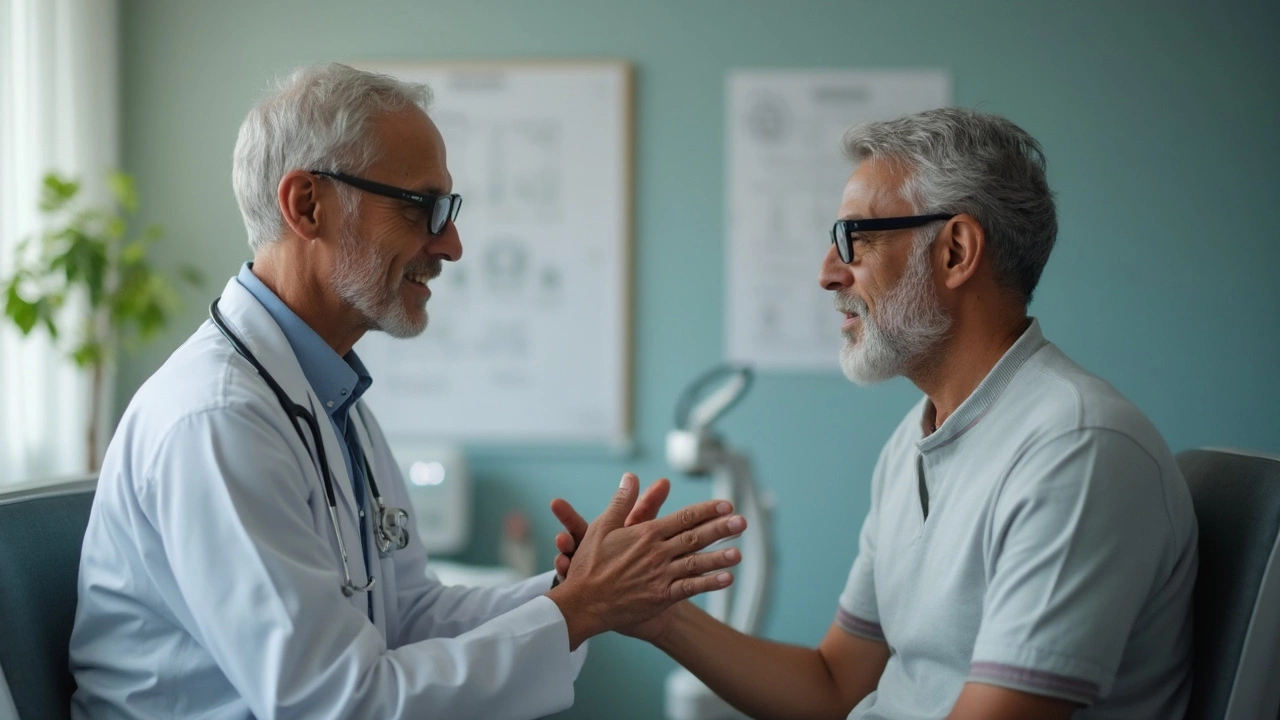
Everyday Signs That Might Slip Under the Radar
You wouldn’t expect something subtle—like losing your taste for coffee or needing more naps—to mean anything serious. But when it comes to cancer, some of the signs are so everyday that people brush them off.
Let’s get clear about what to actually watch for. The most important thing: these aren’t always about pain. Most folks hope for a big, dramatic clue, but in reality, changes can be pretty low-key.
- Fatigue—Not just the "I stayed up too late" tiredness. We’re talking about exhaustion that sticks around even when you get enough sleep.
- Unexplained weight loss—Dropping pounds for no reason, especially if you haven’t changed your diet or workout routine.
- Ongoing fevers or infections—Frequent fevers or infections that just won’t quit can be a sign, especially for blood cancers.
- Persistent cough or hoarseness—Lasting more than a few weeks, and it’s not going away with cold meds.
- Changes in your skin—A new mole, a sore that doesn’t heal, or yellowing eyes and skin.
- Trouble swallowing or chronic indigestion—Not just the "bad pizza" kind, but stuff that won’t improve.
- Painless lumps—Found in places like the neck, underarms, or groin.
- Unusual bleeding—Blood in your stool, urine, or coughing blood needs real attention.
According to studies by the American Cancer Society, about 1 in 5 people with cancer have no major symptoms at diagnosis. Here’s a table showing percentages of hidden symptoms linked to different cancer types:
| Cancer Type | Percentage Found Asymptomatic |
|---|---|
| Colon Cancer | 18% |
| Lung Cancer | 12% |
| Prostate Cancer | 22% |
| Kidney Cancer | 25% |
The big takeaway? These ‘not a big deal’ signs aren’t something you should ignore for months. If something is off and doesn’t settle down after a couple of weeks, check in with your doctor. Catching things early is the best shot at beating cancer, even when you still feel fine.
Why Regular Screening Really Matters
It’s easy to ignore check-ups when you feel great, but that’s when things can get risky. Cancer symptoms aren’t always obvious, and lots of people don’t realize anything’s wrong until their cancer is at a stage where it’s harder to treat. That’s why regular screening is such a big deal—it catches stuff you’d never notice on your own.
To put it into perspective, some numbers hit hard. For colon cancer, when it’s caught early, survival rates hit around 90%. If it’s found late, that number can drop below 15%. The story’s similar with breast, cervical, and prostate cancers. Early detection through screening isn’t just a formality—it’s a real lifesaver.
| Cancer Type | Screening Method | Early-Stage 5-Year Survival Rate |
|---|---|---|
| Breast | Mammogram | 99% |
| Colon | Colonoscopy | 90% |
| Cervical | Pap Smear | 93% |
| Prostate | PSA Blood Test | 99% |
Most people put off screenings because they think they’re only for older folks or those with family histories. But cancers like colon or cervical cancer can show up even when you’re young and healthy-looking. Catching them early usually means faster recovery, less intense treatment, and way better odds.
- Don’t skip regular check-ups. Your doctor can spot changes you probably can’t feel or see yourself.
- Know which screenings you need based on your age and risk factors. Your family history really matters here.
- If you’re nervous about a particular test, ask for details. Most screenings are pretty quick and not as bad as you might think.
Remember, cancer doesn’t care how healthy you feel. Screening is about staying ahead, not playing catch-up once signs appear.
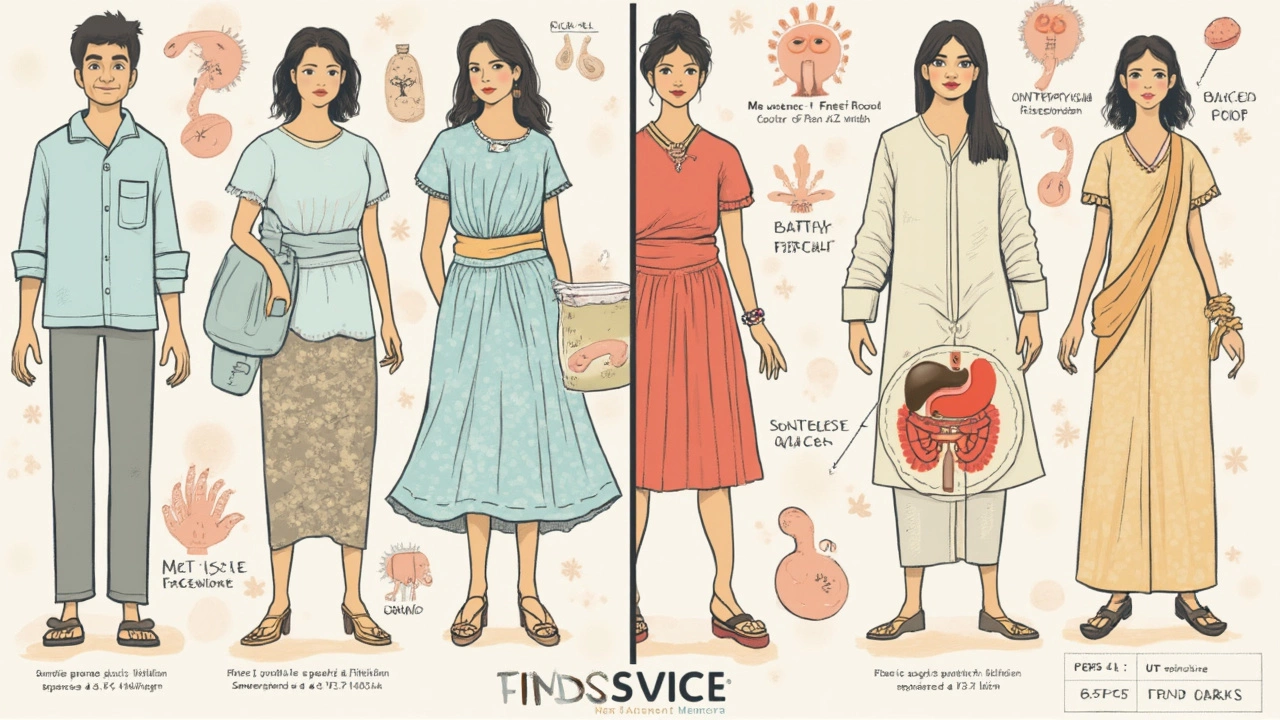
Smart Moves for Your Health: Tips and Next Steps
If you want to lower your risk of silent cancer, you’ve got to stay one step ahead. You don’t need to panic or get obsessed—just take steady, smart action.
First, know your family history. If your parents, siblings, or even grandparents had cancer, your chances are higher. Let your doctor know about this, even if you feel fine. Some cancers run in families, so this detail actually matters.
Second, schedule those boring—but life-saving—screening tests. Different tests matter for different ages and backgrounds. Here’s a quick look at basic guidelines:
| Screening | Who Should Get It | How Often? |
|---|---|---|
| Colon Cancer | Ages 45+, earlier if family history | Every 10 years (colonoscopy) |
| Breast Cancer (mammogram) | Women 40+, or earlier if high risk | Every 1-2 years |
| Cervical Cancer (Pap test) | Women ages 21–65 | Every 3 years |
| Lung Cancer (CT scan) | Adults 50–80 who smoked a lot | Yearly |
| Prostate Cancer (PSA blood test) | Men 50+, earlier if African-American or family history | Ask your doctor |
Third, pay attention to your body, but don’t overthink every twinge. The long game is noticing changes that stick around or keep coming back. If something just feels weird for a while—like lumps or unexpected weight loss—get it checked out. Early steps make a huge difference.
Fourth, build habits that stack the odds in your favor. Here’s where it gets real. It’s less about ‘perfect health’ and more about simple moves done regularly:
- Quit smoking and skip vaping. They’re top risks for many cancers.
- Move your body most days. Even brisk walks help.
- Keep alcohol use low—less is better, especially for breast and colon cancer.
- Eat more plants. Fruits, veggies, and whole grains matter far more than another ‘superfood’ trend.
- Don’t skip sleep. Poor sleep, year after year, adds up.
- Regular check-ups with your doc, even if you feel totally fine.
One last thing—cancer symptoms aren’t always obvious or even present, especially in early stages. That’s why these small, repeatable habits and check-ups matter so much. Remember: most early cancers caught by screening are easier to treat and mean better odds for you.

